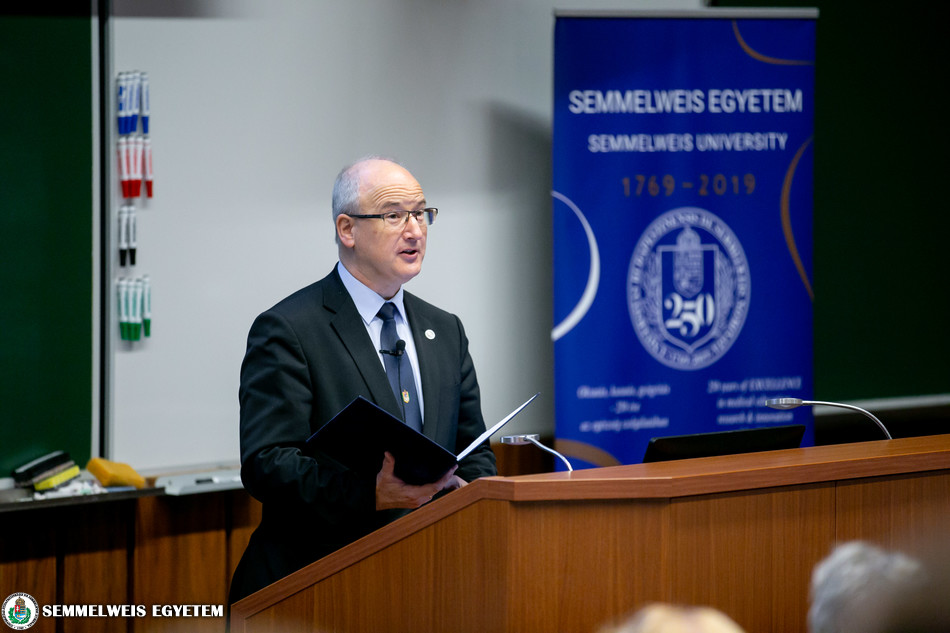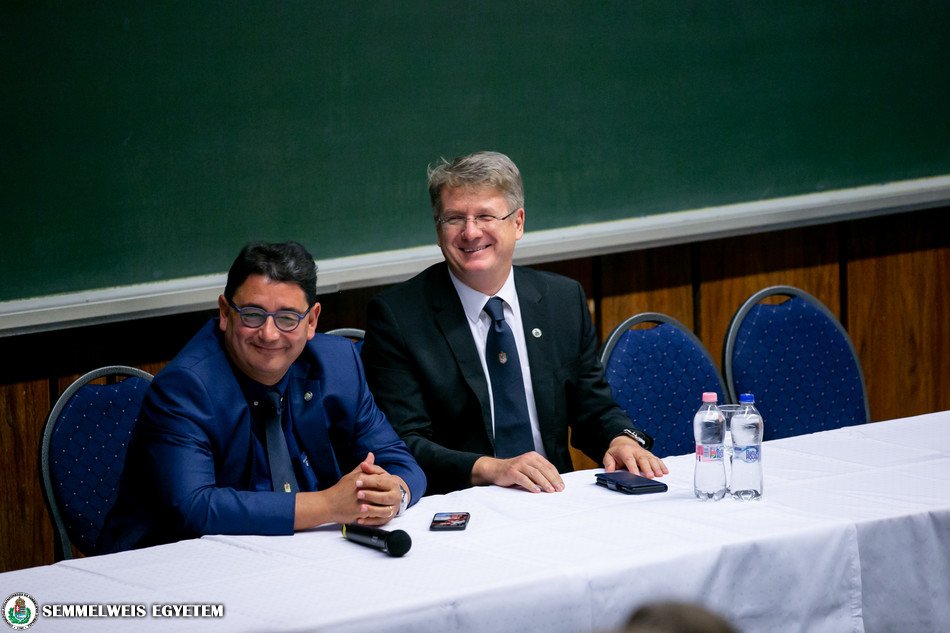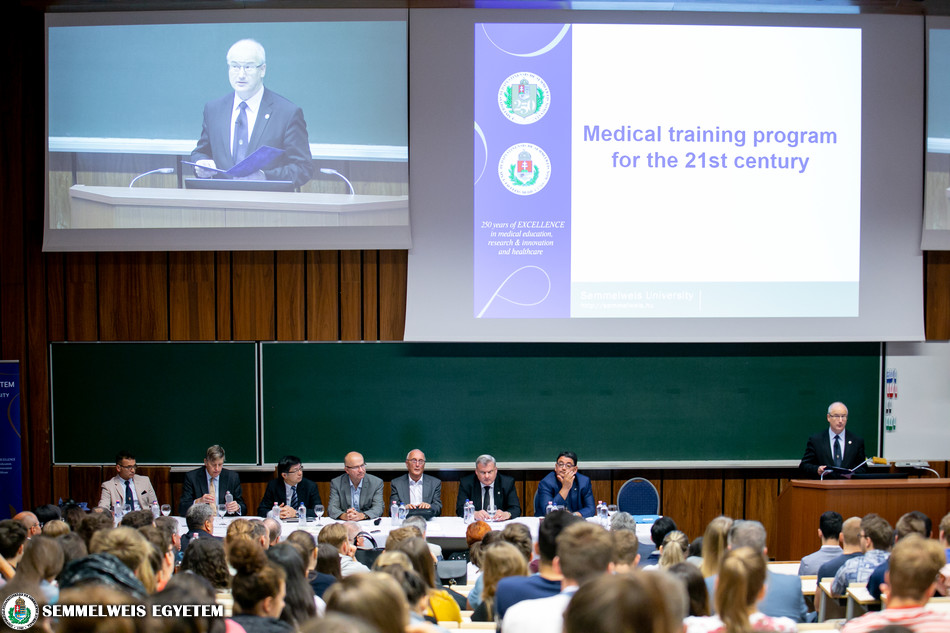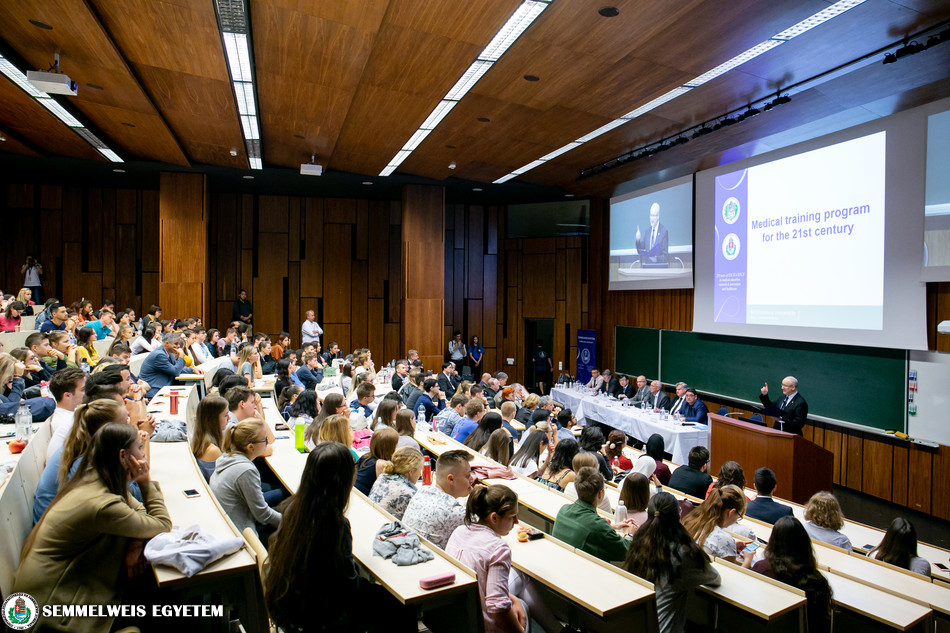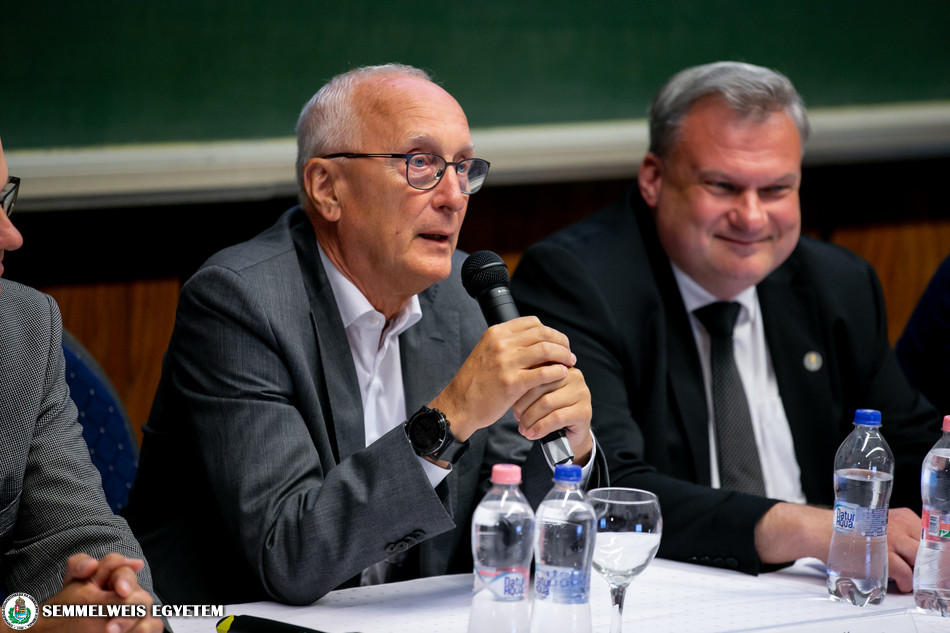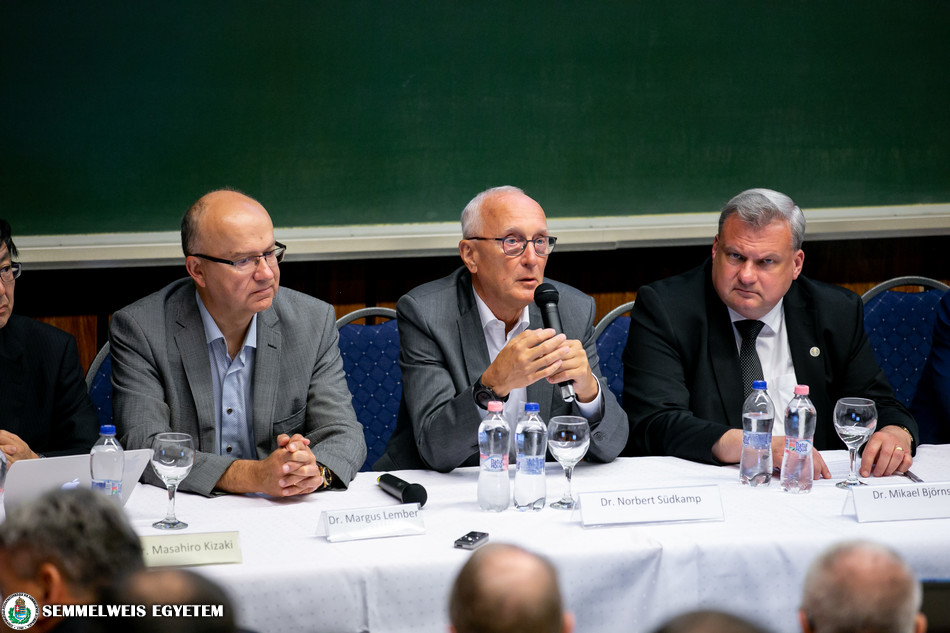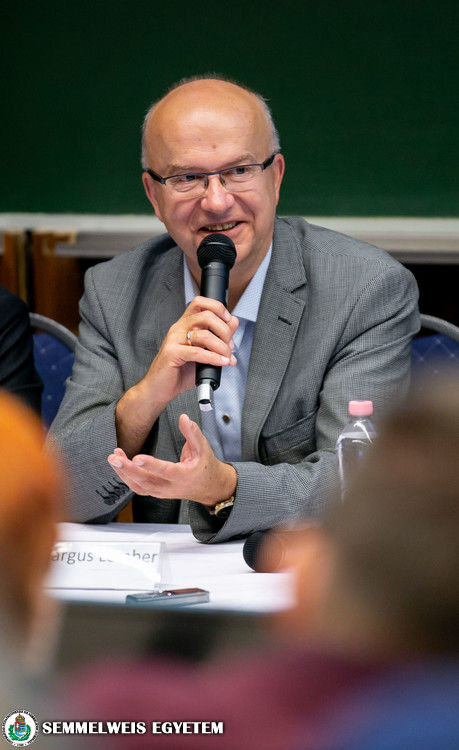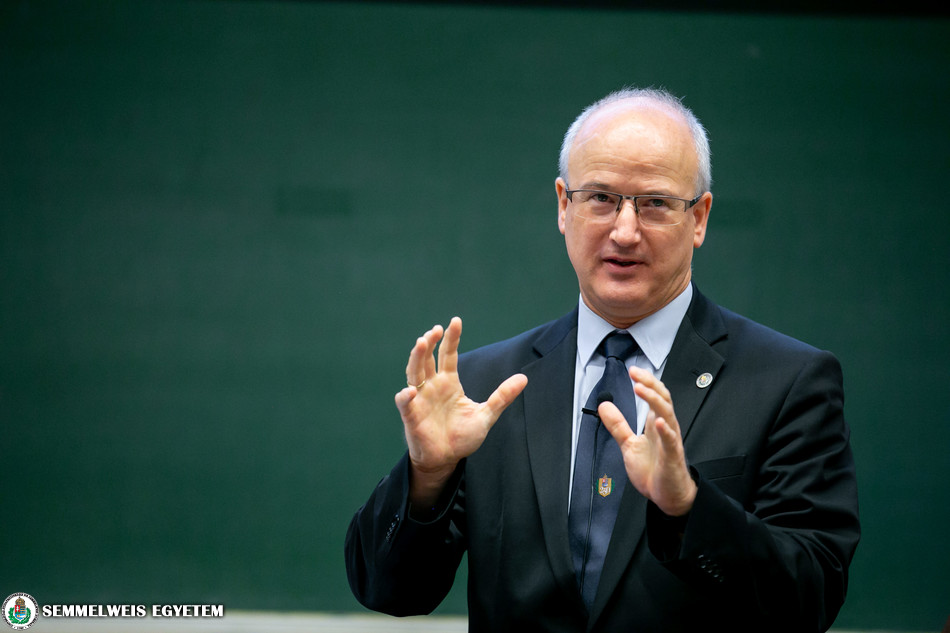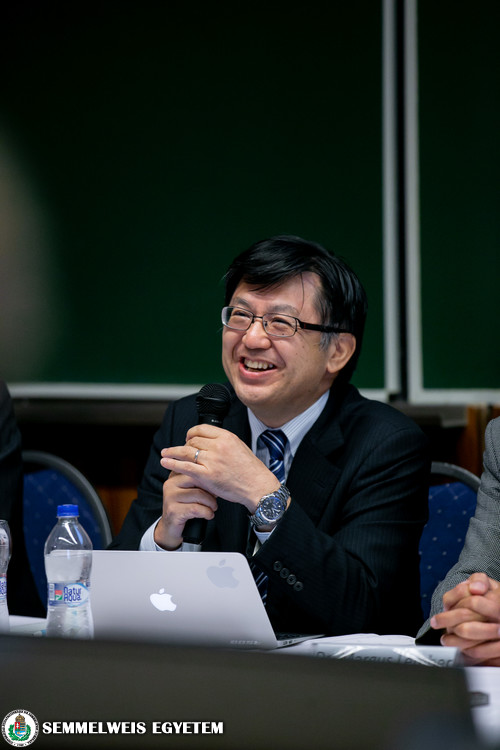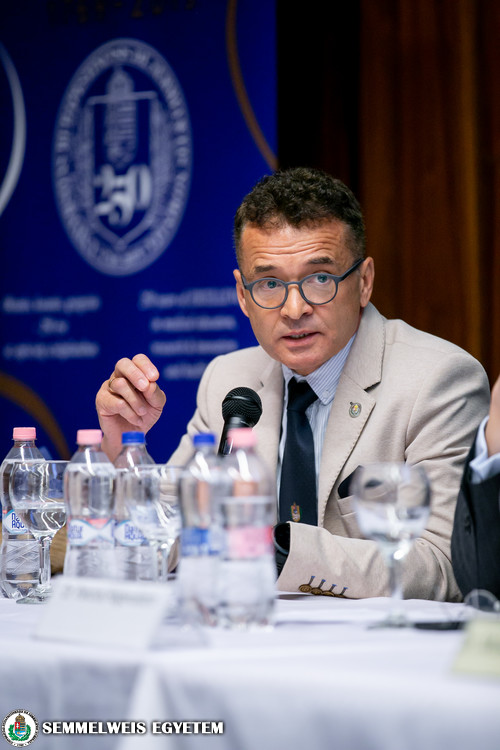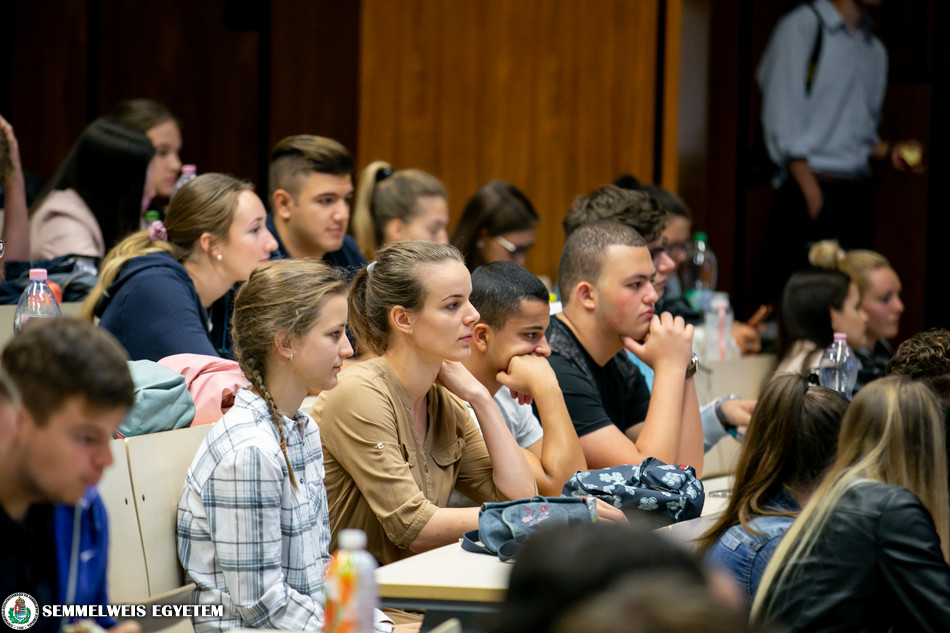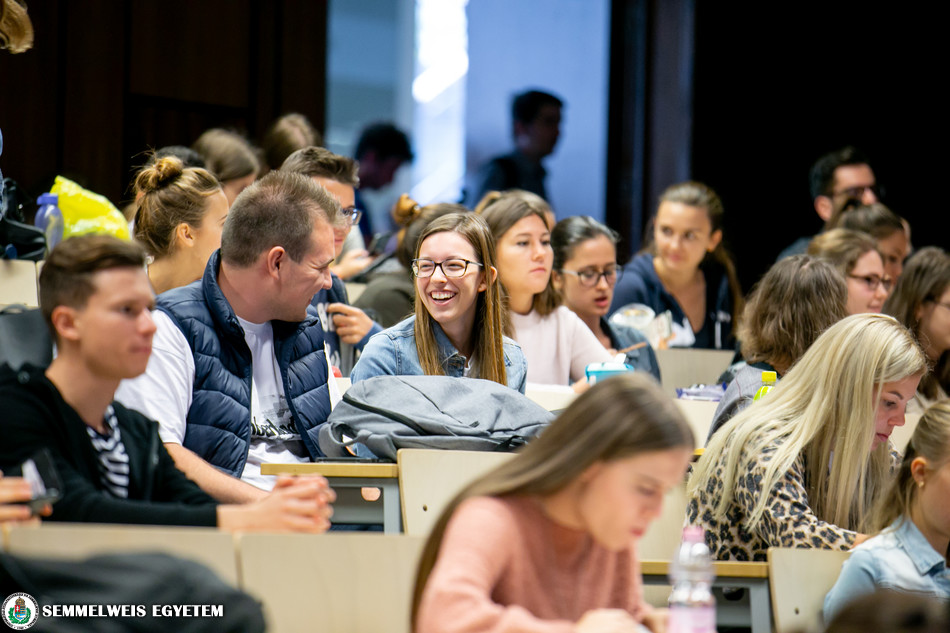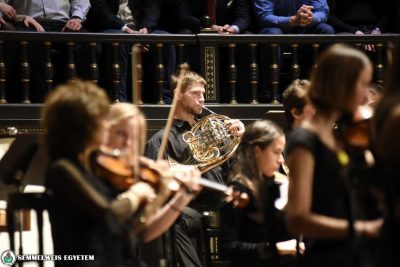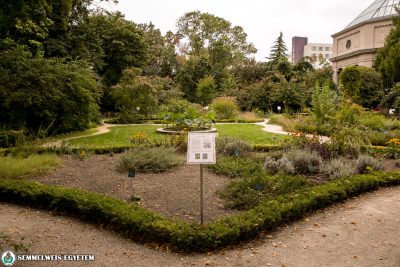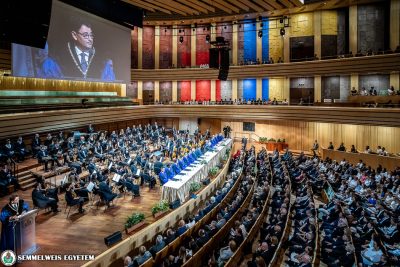“Professional education has not kept pace with societal challenges, largely because of fragmented, outdated and static curricula that produce ill-equipped graduates,” said Dr. Miklós Kellermayer in his introductory speech outlining the problems at stake in medical education. He noted that the problems are systemic, extending to a mismatch of competencies to the needs of the patient and the population, poor teamwork, narrow technical focus, predominant hospital orientation at the expense of primary care and weak leadership. He also pointed out some global anomalies is medical and health-professional training, as about one million new doctors are trained each year worldwide, but in an unbalanced distribution, with four countries (China, India, Brazil, USA) having more than 150 medical schools each, while 36 countries have none at all. Thus, medical school numbers do not align well with either country population size or national burden of disease. Furthermore, while total global expenditure for health professional education is about USD 100 billion per year, with great disparities between countries, this is less than 2% of worldwide health expenditures, which is quite modest for a labor-intensive and talent-driven industry, he noted.
The problems of medical training have been addressed systematically only in the last century, Dr. Kellermayer said, progressing through three generations of educational reforms, from teaching a science-based curriculum to introducing problem-based instructional innovations. A third, systems-based generation is now needed to improve the performance of health systems. “Realizing this vision will require a series of instructional and institutional reforms, which should be guided by two proposed outcomes: transformative learning and interdependence in education,” he declared. Transformative learning is the highest of three levels, following informative (acquiring knowledge and skills to produce experts) and formative (socializing students around values to produce professionals). “Transformative learning is about developing leadership attributes, to produce enlightened change agents, willing and able to shape and lead their local environment,” said the dean.
Before handing the floor over to rector Dr. Béla Merkely to talk about the new medical curriculum, Dr. Kellermayer noted that the reform was developed over the past year through intensive work and collaboration with both the student body and faculty. While various changes had been made to the curriculum over the past years, they were mostly superficial, failing to dig down to the root of the essential problems facing the development of medical education. “We employed a different strategy, defining clear objectives, and holding intense dialogue with stakeholders. We await with great attention the launch of this new curriculum, but also with due humility and modesty so that careful adjustments can be made as we progress,” he said.
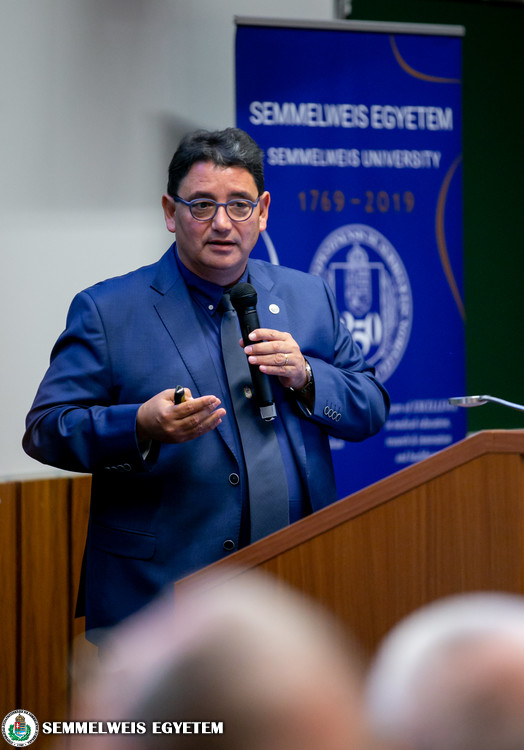 Dr. Béla Merkely started his talk on the logic and structure of the new curriculum by noting that medical knowledge doubles about every two years, which necessitates continuous adaptation of the medical curriculum. Practical skills are increasingly expected from medical graduates, and international competition is increasing among universities, while the personal career issues of doctors also need to be addressed, he said, providing some background and motivation for new curriculum. “The major objective of the renewed program is the efficient training of the general medical doctor, one who is an independent, critical thinker, who can make certain medical decisions, knows the first 15 minutes of emergency care in both theory and practice, behaves as a ‘pluripotent stem cell’ capable of differentiation, and is capable of lifelong learning and development,” said the rector.
Dr. Béla Merkely started his talk on the logic and structure of the new curriculum by noting that medical knowledge doubles about every two years, which necessitates continuous adaptation of the medical curriculum. Practical skills are increasingly expected from medical graduates, and international competition is increasing among universities, while the personal career issues of doctors also need to be addressed, he said, providing some background and motivation for new curriculum. “The major objective of the renewed program is the efficient training of the general medical doctor, one who is an independent, critical thinker, who can make certain medical decisions, knows the first 15 minutes of emergency care in both theory and practice, behaves as a ‘pluripotent stem cell’ capable of differentiation, and is capable of lifelong learning and development,” said the rector.
Elaborating on the methods of approach in the curricular renewal, he mentioned among others the goal to maintain the excellence of basic theoretical training while developing and strengthening practical clinical training, clarifying the modular structure of medical subjects, eliminating redundancies, reorganizing logistically deficient subjects, and introducing relevant new subjects. He also presented in brief the logic of the new curricular structure (for more details about the new curriculum, read our previous article on the topic.)
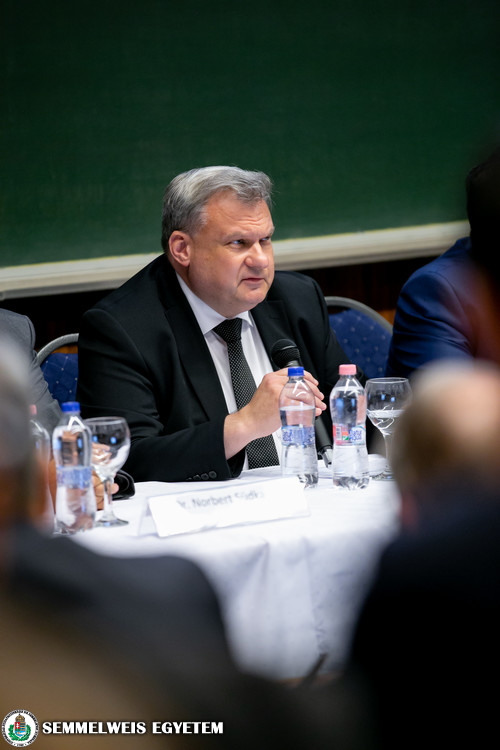 The introductory speeches were followed by a discussion on the aspects of medical training with the international members of the panel. Dr. Mikael Björnstedt from the Division of Pathology, Department of Laboratory Medicine at Karolinska Institute in Stockholm, Sweden, emphasized the need to focus more on science-oriented training that provides a foundation for lifelong learning, as well as on building more interfaces with other disciplines. “Medicine should lead this development, making use of the new technologies available,” said the professor, who became Doctor Honoris Causa of Semmelweis University in 2017.
The introductory speeches were followed by a discussion on the aspects of medical training with the international members of the panel. Dr. Mikael Björnstedt from the Division of Pathology, Department of Laboratory Medicine at Karolinska Institute in Stockholm, Sweden, emphasized the need to focus more on science-oriented training that provides a foundation for lifelong learning, as well as on building more interfaces with other disciplines. “Medicine should lead this development, making use of the new technologies available,” said the professor, who became Doctor Honoris Causa of Semmelweis University in 2017.
Dr. Norbert Südkamp, dean of the Faculty of Medicine at Freiburg University, Germany, also stressed the importance of medical students acquiring the basic knowledge they need to ask questions, solve problems, as well as read critically. Dr. Margus Lember, dean of the Faculty of Medicine of the University of Tartu, Estonia, noted the importance of learning over that of teaching, and pointed out that the way students learn now is different from how it was earlier. He also agreed with the importance of emphasizing primary care in the training process and that students should have early contact with patients. Arriving from Japan, Dr. Masahiro Kizaki, Vice President of Saitama Medical Center called attention to the importance of the internationalization of education as well as having a ‘research mind.’
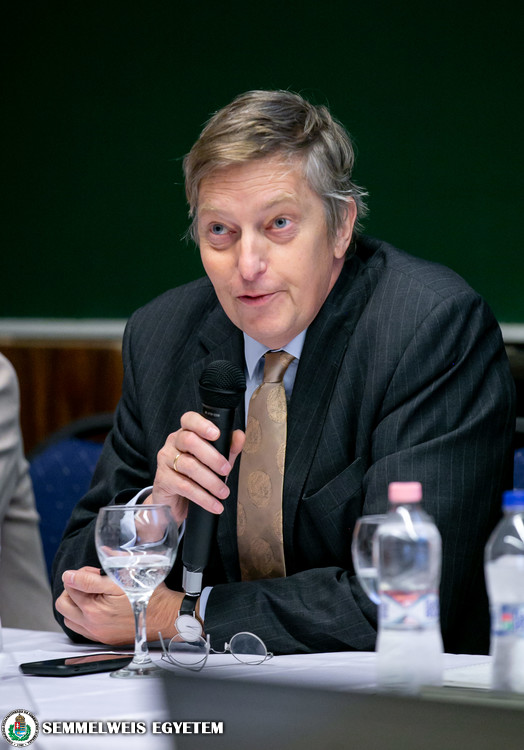 Dr. Pancras Hogendoorn, the dean of Leiden University Medical Center in the Netherlands, shared his views on what, how and where to learn in medical education. He said that what should be learned changes constantly, so one should have the professional competence to be able to integrate knowledge from different sources. Interdisciplinarity is also important, as are new areas like biostatistics and artificial intelligence, but above all prevention should be a key focus, due to the high cost of health care. In how to learn, curiosity should be the main driver, while in terms of where, he urged that students go to the international podium as soon as possible and take advantage of all opportunities for summer schools to constantly keep learning.
Dr. Pancras Hogendoorn, the dean of Leiden University Medical Center in the Netherlands, shared his views on what, how and where to learn in medical education. He said that what should be learned changes constantly, so one should have the professional competence to be able to integrate knowledge from different sources. Interdisciplinarity is also important, as are new areas like biostatistics and artificial intelligence, but above all prevention should be a key focus, due to the high cost of health care. In how to learn, curiosity should be the main driver, while in terms of where, he urged that students go to the international podium as soon as possible and take advantage of all opportunities for summer schools to constantly keep learning.
Also joining the discussion from the podium was Dr. Gábor Gerber, the dean of Semmelweis University’s Faculty of Dentistry, who talked about the specifics of his field and underlined the importance of teaching responsibility to prospective doctors. Addressing the discussion from the floor were several other foreign academics and university leaders, including Dr. Hans-Günther Sonntag, the former dean of Heidelberg University’s Faculty of Medicine. Dr. Sonntag talked about the need to train communication with patients, making time to hone one’s research skills, and having a dedicated crew of interested medical doctors and teachers to work on constantly renewing the curriculum to keep up with the changing environment.
Students also had an opportunity to address the participants, and the university leaders reacted to their comments and suggestions in an open and accommodating manner, promising that the needs of students will continue to be listened to and addressed throughout discussions in the current introductory year of the new curriculum, and urged them to provide feedback. The international forum, which was conducted in English, was followed by a national forum on curriculum reform for Hungarian students.
Tamás Deme
Photo: Attila Kovács – Semmelweis University
